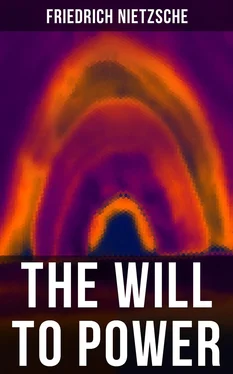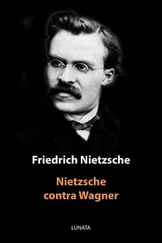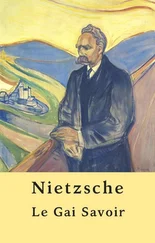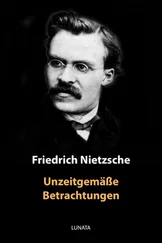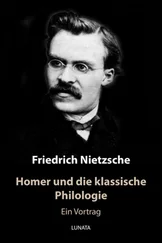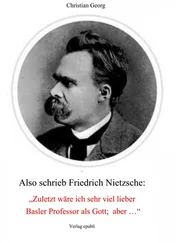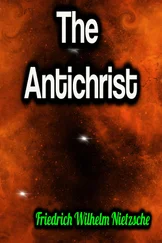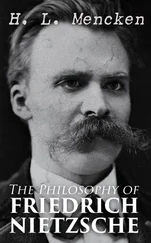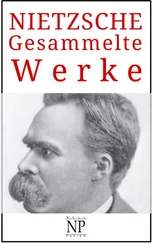What has actually happened? The feeling of worthlessness was realised when it was understood that neither the notion of " Purpose " nor that of " Unity " nor that of " Truth " could be made to interpret the general character of existence. Nothing is achieved or obtained thereby; the unity which intervenes in the multiplicity of events is entirely lacking: the character of existence is not "true," it is false ; there is certainly no longer any reason to believe in a real world. In short, the categories, "Purpose," "Unity," "Being," by means of which we had lent some worth to life, we have once more divorced from it—and the world now appears worthless to us....
B.
Admitting that we have recognised the impossibility of interpreting world by means of these three categories, and that from this standpoint the world begins to be worthless to us; we must ask ourselves whence we derived our belief in these three categories. Let us see if it is possible to refuse to believe in them. If we can deprive them of their value, the proof that they cannot be applied to the world, is no longer a sufficient reason for depriving that world of its value .
Result: The belief in the categories of reason 2is the cause of Nihilism—we have measured the worth of the world according to categories which can only be applied to a purely fictitious world.
Conclusion: All values with which we have tried, hitherto, to lend the world some worth, from our point of view, and with which we have therefore deprived it of all worth (once these values have been shown to be inapplicable)—all these values, are, psychologically, the results of certain views of utility, established for the purpose of maintaining and increasing the dominion of certain communities: but falsely projected into the nature of things. It is always man's exaggerated ingenuousness to regard himself as the sense and measure of all things.
13.
Nihilism represents an intermediary pathological condition (the vast generalisation, the conclusion that there is no purpose in anything, is pathological): whether it be that the productive forces are not yet strong enough—or that decadence still hesitates and has not yet discovered its expedients.
The conditions of this hypothesis :—That there is no truth ; that there is no absolute state of affairs—no "thing-in-itself." This alone is Nihilism, and of the most extreme kind. It finds that the value of things consists precisely in the fact that these values are not real and never have been real, but that they are only a symptom of strength on the part of the valuer, a simplification serving the purposes of existence.
14.
Values and their modification are related to the growth of power of the valuer.
The measure of disbelief and of the "freedom of spirit" which is tolerated, viewed as an expression of the growth of power.
"Nihilism" viewed as the ideal of the highest spiritual power, of the over-rich life, partly destructive, partly ironical.
15.
What is belief ? How is a belief born? All belief assumes that something is true.
The extremest form of Nihilism would mean that all belief—all assumption of truth—is false: because no real world is at hand. It were therefore: only an appearance seen in perspective, whose origin must be found in us (seeing that we are constantly in need of a narrower, a shortened, and simplified world).
This should be realised, that the extent to which we can, in our heart of hearts, acknowledge appearance, and the necessity of falsehood, without going to rack and ruin, is the measure of strength.
In this respect, Nihilism, in that it is the negation of a real world and of Being, might be a divine view of the world.
16.
If we are disillusioned, we have not become so in regard to life, but owing to the fact that our eyes have been opened to all kinds of "desiderata." With mocking anger we survey that which is called " Ideal ": we despise ourselves only because we are unable at every moment of our lives to quell that absurd emotion which is called "Idealism." This pampering by means of ideals is stronger than the anger of the disillusioned one.
17.
To what extent does Schopenhauerian Nihilism continue to be the result of the same ideal as that which gave rise to Christian Theism? The amount of certainty concerning the most exalted desiderata, the highest values and the greatest degree of perfection, was so great, that the philosophers started out from it as if it had been an a priori and absolute fact : "God" at the head, as the given quantity —Truth. "To become like God," "to be absorbed into the Divine Being"—these were for centuries the most ingenuous and most convincing desiderata (but that which convinces is not necessarily true on that account: it is nothing more nor less than convincing. An observation for donkeys).
The granting of a personal-reality to this accretion of ideals has been unlearned: people have become atheistic. But has the ideal actually been abandoned? The latest metaphysicians, as a matter of fact, still seek their true "reality" in it—the "thing-in-itself" beside which everything else is merely appearance. Their dogma is, that because our world of appearance is so obviously not the expression of that ideal, it therefore cannot be "true"—and at bottom does not even lead back to that metaphysical world as cause. The unconditioned, in so far as it stands for that highest degree of perfection, cannot possibly be the reason of all the conditioned. Schopenhauer, who desired it otherwise, was obliged to imagine this metaphysical basis as the antithesis to the ideal, as "an evil, blind will": thus it could be "that which appears," that which manifests itself in the world of appearance. But even so, he did not give up that ideal absolute—he circumvented it....
(Kant seems to have needed the hypothesis of "intelligible freedom," 3in order to relieve the ens perfectum of the responsibility of having contrived this world as it is, in short, in order to explain evil: scandalous logic for a philosopher!).
18.
The most general sign of modern times : in his own estimation, man has lost an infinite amount of dignity. For a long time he was the centre and tragic hero of life in general; then he endeavoured to demonstrate at least his relationship to the most essential and in itself most valuable side of life—as all metaphysicians do, who wish to hold fast to the dignity of man, in their belief that moral values are cardinal values. He who has let God go, clings all the more strongly to the belief in morality.
19.
Every purely moral valuation (as, for instance, the Buddhistic) terminates in Nihilism : Europe must expect the same thing! It is supposed that one can get along with a morality bereft of a religious background; but in this direction the road to Nihilism is opened. There is nothing in religion which compels us to regard ourselves as valuing creatures.
20.
The question which Nihilism puts, namely, "to what purpose?" is the outcome of a habit, hitherto, to regard the purpose as something fixed, given and exacted from outside —that is to say, by some supernatural authority. Once the belief in this has been unlearned, the force of an old habit leads to the search after another authority, which would know how to speak unconditionally, and could point to goals and missions. The authority of the conscience now takes the first place (the more morality is emancipated from theology, the more imperative does it become) as a compensation for the personal authority. Or the authority of reason. Or the gregarious instinct (the herd). Or history with its immanent spirit, which has its goal in itself, and to which one can abandon oneself. One would like to evade the will, as also the willing of a goal and the risk of setting oneself a goal. One would like to get rid of the responsibility ( Fatalism would be accepted). Finally: Happiness and with a dash of humbug, the happiness of the greatest number.
Читать дальше
